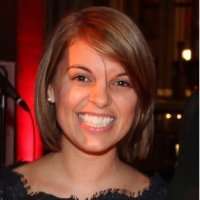
Kay Kempin
Showing 50 of 57 articles
New York City
25 Nov 2013
Nils Frahm at LPR
New York City
22 Nov 2013
Art song at BAM
New York City
22 Oct 2013
Chris Thile and a high percentage of mandolin at Carnegie Hall
New York City
18 Oct 2013
The 5 Browns: More than Just 5 Pianos
New York City
16 Oct 2013
Silk Road Ensemble explores modern-day cultural crossroads at Carnegie Hall
New York City
06 Apr 2013
Alarm Will Sound bring eclectic new works to Carnegie's Zankel Hall
New York City
27 Apr 2013
A tribute to American song: Orpheus Chamber Orchestra with Gabriel Kahane
New York City
26 Mar 2013
An all-John Adams evening with the Attacca Quartet at (Le) Poisson Rouge
New York City
06 Mar 2013
A Parisian affair at the Morgan Library, New York
New York City
15 Feb 2013
Royal Stockholm Philharmonic Orchestra charms and delights at Carnegie Hall
New York City
12 Feb 2013
Afghanistan Ensembles bring music, peace and a promise of collaboration to the Perelman Stage
New York City
29 Jan 2013
West-Eastern Divan Orchestra visits New York's West Village
New York City
13 Jan 2013
(Le) Poisson Rouge celebrates Elliott Carter
New York City
20 Dec 2012
Max Richter's re-imagining of Vivaldi's Four Seasons in NYC
New York City
21 Aug 2012
100 Waltzes for John Cage, a Transient Soundscape on Manhattan's West Side
New York City
30 May 2012
Icarus at the Edge of Time: A Fantastical Odyssey through Time and Space
New York City
22 May 2012
Anderson and Roe: A Dazzling Duo
New York City
02 May 2012
The Brooklyn Philharmonic: Outside-In at Galapagos Art Space
New York City
20 Apr 2012
John Daly Goodwin Bids Farewell to the New York Choral Society
New York City
09 Apr 2012
Flirting with the Past: Alexandre Tharaud at (Le) Poisson Rouge
New York City
11 Mar 2012
Astoria Symphony Orchestra on a Sunday Afternoon
New York City
07 Mar 2012
Boston Symphony Orchestra Revive the French Masters at Carnegie Hall
New York City
28 Feb 2012
Kronos Quartet at Carnegie’s Zankel Hall
New York City
16 Feb 2012
The Orchestra of St. Luke’s, Sir Roger Norrington and Jeremy Denk Take Command of the Stage at Carnegie Hall
New York City
13 Feb 2012
Premiere Commission Celebrates 10 Years of New Music at (Le) Poisson Rouge
New York City
07 Feb 2012
Ray Chen Performs Bach, Brahms, Tchaikovsky and Saint-Saëns
New York City
22 Jan 2012
A Lisztian journey at the 92nd Street Y
New York City
20 Nov 2011
Gabriel Kahane with the Orpheus Chamber Orchestra, and a happy few
New York City
19 Nov 2011
Astoria Symphony Orchestra: A gem in New York City’s outer boroughs
New York City
14 Nov 2011
Joshua Bell and Sam Haywood: Carnegie Hall at its best
New York City
10 Nov 2011
Takács Quartet Perform Dvorák and Bartók
London
29 Aug 2011
Proms Chamber Music 7: Yo-Yo Ma and Kathryn Stott at Cadogan Hall
London
03 Aug 2011
Prom 26: Debussy, Dutilleux and Ravel
London
30 Jul 2011
BBC Proms 20: Horrible Histories
London
21 Jul 2011
BBC Proms 9: Sibelius, Bartók and Janáček
London
15 Jul 2011
BBC Proms Opening Night: Weir, Brahms, Liszt and Janáček
London
04 Jun 2011
Perpetual Light - A triumphant new choral work
London
05 Jun 2011
Candide (or Optimism)
New York City
12 May 2011
Infectious Performance of Mexican and Latin American Music by La Catrina Quartet
New York City
04 May 2011
New York Philharmonic Executes Bartók and Beethoven with Clever Ferocity
London
29 Apr 2011
Turtle Island Quartet Transcends Musical Boundaries
London
13 Apr 2011
Milos Karadaglic and London Philharmonic Orchestra’s Foyle Future Firsts
London
10 Apr 2011
The Chopin Society UK: A Little Known Gem in London
London
25 Mar 2011
Aurora Orchestra Pulls at Our Heartstrings with Jealous Guy
London
23 Mar 2011
Marin Alsop, Sheds Light on Contemporary Music at the Royal Festival Hall
London
13 Mar 2011
With Sir Colin Davis, London Symphony Orchestra Masters Beethoven
London
19 Feb 2011
East Meets West: An Extravaganza
London
16 Feb 2011
London Philharmonic Orchestra Master Two French Greats: Ravel and Berlioz
London
13 Feb 2011
Evgeny Kissin at Barbican Centre
London
08 Feb 2011
Boris Giltburg at Wigmore Hall

